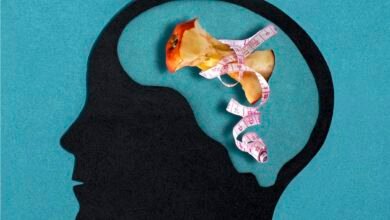7 Best Ways to Manage Eating Disorders

Eating disorders are serious mental health conditions that can have devastating effects on a person’s physical and emotional well-being. These disorders affect both men and women and can develop at any age. Some common eating disorders include anorexia nervosa, bulimia nervosa, and binge eating disorder. While eating disorders can be difficult to manage, there are ways to get help and take control of your life. In this article, we will explore the 7 best ways to manage eating disorders.
Read More: Not Just Young People Experience Eating Disorders
Understanding Eating Disorders
Before we dive into the best ways to manage eating disorders, it’s important to understand what they are and how they affect the body. Eating disorders are complex mental health conditions that can manifest in a variety of ways. Some common symptoms include:
- Obsessive thoughts about food and body image
- Extreme calorie restriction or binge eating
- Feeling guilty or ashamed after eating
- Compulsive exercise
- Body dysmorphia or an unrealistic perception of one’s body size or shape
Eating disorders can have serious physical and emotional consequences, including malnutrition, organ damage, and depression. If you suspect you or someone you love may have an eating disorder, it’s important to seek professional help.
Best Ways to Manage Eating Disorders
Eating disorders are a serious mental health condition that affects millions of people around the world. They can lead to severe physical and emotional health consequences and can be difficult to manage without professional help. In this article, we’ll explore seven of the best ways to manage eating disorders and take steps toward recovery.
Seek Professional Help
One of the most important ways to manage an eating disorder is to seek professional help. Eating disorders are complex mental health conditions that require specialized treatment. A mental health professional can help you understand your condition, develop coping skills, and create a treatment plan that works for you.
Practice Mindful Eating
Mindful eating is a powerful tool for managing eating disorders. This technique involves paying attention to the sensory aspects of food, such as taste, texture, and smell, and eating slowly and with intention. By practicing mindful eating, you can learn to tune in to your body’s hunger and fullness signals and develop a healthier relationship with food.
Build a Support System
Building a support system is crucial for managing eating disorders. This can include family, friends, and mental health professionals who can offer encouragement, accountability, and a listening ear. Support groups can also be a helpful resource for connecting with others who are going through similar struggles.
Develop Healthy Coping Skills
Eating disorders are often linked to underlying emotional issues, such as anxiety, depression, or trauma. Developing healthy coping skills can help you manage these emotions more productively. Some healthy coping skills include mindfulness meditation, journaling, and exercise.
Set Realistic Goals
Setting realistic goals is an important part of managing an eating disorder. It’s easy to become overwhelmed and feel like recovery is impossible, but setting small, achievable goals can help build momentum and confidence. Start by identifying one area of your eating disorder that you would like to improve, such as reducing binge eating or increasing the variety of foods in your diet.
Practice Self-Care
Practicing self-care is an essential part of managing an eating disorder. This means prioritizing your physical, emotional, and mental well-being. Eating disorders can be emotionally draining, so it’s important to take time to do things that make you feel good. This might include taking a relaxing bath, reading a book, or spending time with friends and family. Exercise can also be a form of self-care, but it’s important to approach it in a balanced way that doesn’t trigger obsessive behaviors.
Stay Positive
Maintaining a positive attitude can make a big difference in managing an eating disorder. It’s easy to become discouraged and overwhelmed, but focusing on positive affirmations and self-talk can help shift your mindset. Start by identifying negative thoughts that arise around food and body image, and challenge them with positive counter-thoughts. For example, if you find yourself thinking “I’m so weak for giving in to that craving,” counter with “It’s okay to indulge in moderation, and I am strong for working towards recovery.”
Conclusion
Managing an eating disorder can be challenging, but it’s important to remember that help is available. By seeking professional help, practicing mindful eating, building a support system, developing healthy coping skills, setting realistic goals, practicing self-care, and staying positive, you can take control of your life and improve your overall well-being.
Read More: 10 Arguments in Favor of Eating Dinner Earlier
FAQs
What are some common types of eating disorders?
Some common types of eating disorders include anorexia nervosa, bulimia nervosa, binge eating disorder, and orthorexia.
How do I know if I have an eating disorder?
If you are experiencing obsessive thoughts about food and body image, engaging in extreme calorie restriction or binge eating, feeling guilty or ashamed after eating, engaging in compulsive exercise, or having a distorted perception of your body size or shape, you may have an eating disorder. It’s important to seek professional help if you suspect you may have an eating disorder.
What should I do if I suspect someone I love has an eating disorder?
If you suspect someone you love has an eating disorder, it’s important to approach the subject with sensitivity and compassion. Express your concern and offer to help them seek professional help. Avoid making negative comments about their appearance or eating habits, as this can exacerbate the problem.
Can eating disorders be cured?
While there is no cure for eating disorders, they can be managed with professional help and ongoing support. Recovery is a journey, and it’s important to celebrate the small victories along the way.
How long does it take to recover from an eating disorder?
Recovery from an eating disorder is a highly individualized process and can take anywhere from a few months to several years. It’s important to be patient and focus on making sustainable, positive changes over time.



